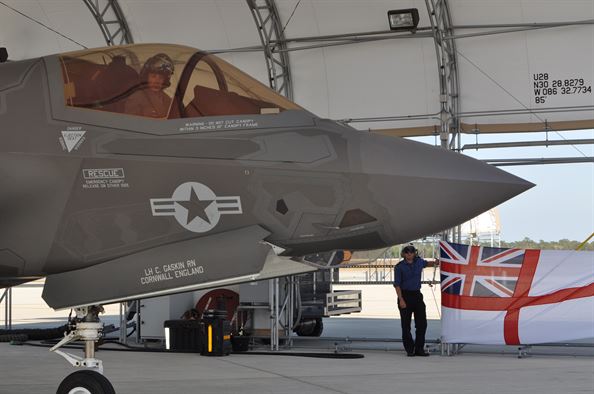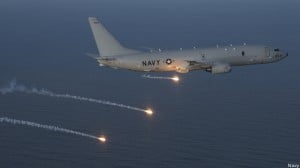Britain To Buy P-8s, Reaffirms Full F-35 Buy; Doubling Special Forces Spending
Posted on
WASHINGTON: The British have released their Strategic Defense Review, declaring they will plug the gaping hole in their anti-submarine warfare capabilities by buying nine P-8s from Boeing and showing considerable confidence in Lockheed Martin’s F-35 as they pledge to buy more earlier.
The “National Security Strategy and Strategic Defence and Security Review” also restated its commitment to buy the full complement of 138 F-35Bs. The strategic framework for the review was pretty stark, as laid out by Prime Minister David Cameron. “From the rise of ISIL and greater instability in the Middle East, to the crisis in Ukraine, the threat of cyber attacks and the risk of pandemics, the world is more dangerous and uncertain today than five years ago,” Cameron said in a foreword to the document.
For our readers, here’s the key bit:
“We will establish two additional Typhoon squadrons and an additional squadron of F-35 Lightning combat aircraft to operate from our new aircraft carriers. We will buy nine new Maritime Patrol Aircraft, based in Scotland, to protect our nuclear deterrent, hunt down hostile submarines and enhance our maritime search and rescue. We will create two new Strike Brigades, forces of up to 5,000 personnel fully equipped to deploy rapidly and sustain themselves in the field,” Cameron writes.
“By 2025, we will have a highly capable expeditionary force of around 50,000, up from the 30,000 we committed to in 2010. We will double our investment in our Special Forces’ equipment. We will maintain our ultimate insurance policy as a nation – our Continuous At Sea Nuclear Deterrent – and replace our four ballistic missile submarines. In the longer term we will also increase the size of the Royal Navy’s frigate fleet.”
And, as has already been reported, Britain will also substantially boost its intelligence services, spending £2.5 billion more and hiring more than 1,900 new employees, with a focus on experts in the Middle East, North Africa, South Asia and Sub Saharan Africa.
The UK’s commitment to “double” spending on Special Forces equipment will, I understand, be directed to so-called Tier 2 Special Forces. The review adds that money will be spent on “advanced communications equipment,” advanced high-altitude surveillance aircraft and upgraded helicopters and transport planes “so that they can deploy further and faster.”
With an eye on that restive land known as Russia, and the world’s growing access to the Arctic as climate change progresses, the review says it will train Royal Marines of 3 Commando Brigade “to provide specialist amphibious and Arctic warfare capabilities.” One of the two Queen Elizabeth aircraft carriers will be enhanced to support them.
The Brits will also launch a concept study with an eye to building “a new class of lighter, flexible general purpose frigates.”
The most interesting break with the existing international order is Britain’s carefully considered decision to improve and enrich its relations with China. “We are also building stronger relationships with growing powers, including China, India, Brazil and Mexico,” the review notes. “The UK was the first major Western country to become a prospective founding member of the Asian Infrastructure Investment Bank, which has received significant support in the region.”
Of course, the United States publicly opposed the move to closer relations with China, but Britain went ahead anyway. The report does contain the expected commitment to the “special relationship” with the United States, but it mentions the important role of the Five Eyes intelligence-sharing partnership with the US, Canada, Australia and New Zealand and expanded defense and security relationships with France and Germany in the same paragraph.
To the trenchant criticism by President Obama in February that failure by Britain to meet its NATO spending requirements would set a very bad example for NATO, Cameron includes mention that “the United Kingdom is the only major country in the world today which is simultaneously going to meet the NATO target of spending 2% of our GDP on defence and the UN target of spending 0.7% of our GNI (Gross National Income) on development, while also increasing investment in our security and intelligence agencies and in counter-terrorism.” So there.
Subscribe to our newsletter
Promotions, new products and sales. Directly to your inbox.


